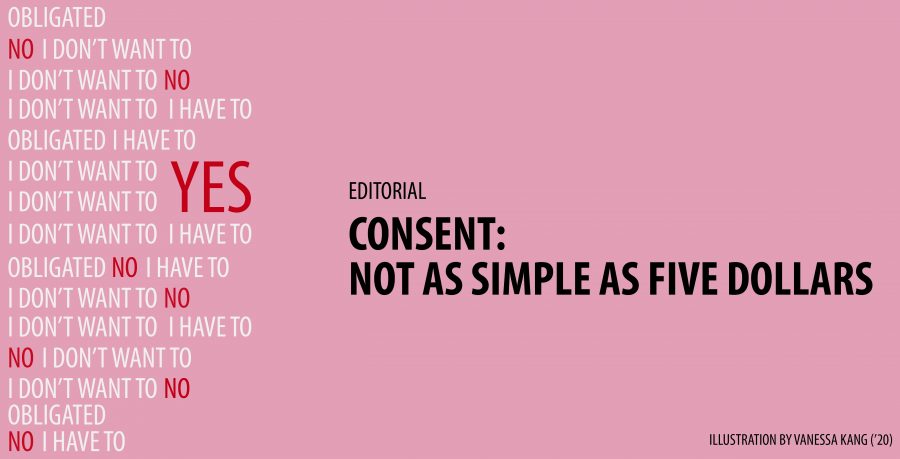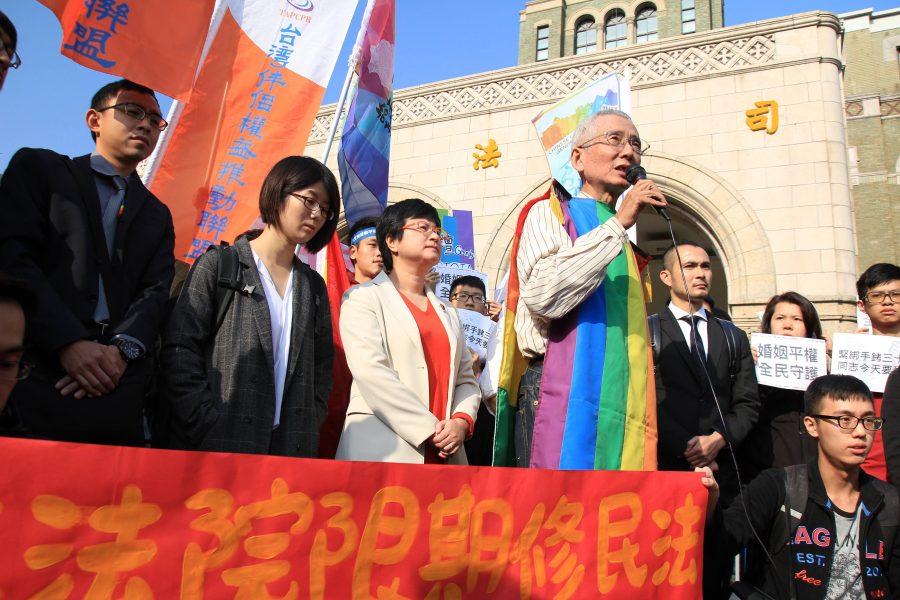With early decision results just around the corner, the divide between students financial situations has never been wider: While some students rest assured that they can attend (and afford) dream schools, for others, even finding an affordable option is a dream, and available aid is a prominent deciding factor.
This is true in all high schools, and Taipei American School is no exception to this rule. People here may not often talk about how they are financing their collegiate dreams next year, but we know that silence on this issue does not mean the issue does not exist.
During conversations with Taiwanese taxi drivers or hairdressers, mentioning TAS sometimes calls to mind full-fledged portraits of spoiled, crazy rich Asians. Being an international school student seems to warrant assumptions that money is never an issue for our educational endeavors. It is true that our school has a rather large sticker price attached to it. Tuition to enroll in our community was over $400,000 NT during this semester. We are not trying to argue that our school is cheap, but we do know that just because some families find ways to afford this price does not mean that it is an easy task for them. This depiction of students’ silver-spoon upbringings is a clear exaggeration that even TAS students often put too much credence in it.
During conversations with Taiwanese taxi drivers or hairdressers, mentioning TAS sometimes calls to mind full-fledged portraits of spoiled, crazy rich Asians.
In truth, the student body is more economically diverse than the stereotype would suggest. TAS’ tuition does mandate a certain degree of affluence, but families go about making payments in vastly different ways. Some parents make substantial sacrifices to send their children here; some may rely on employers and grandparents.
But with money as a taboo topic, especially with different families having varying views of what affording to be a TAS student means, it is difficult for students to actively cultivate a practice of financial mindfulness. Because many of us do not talk about our families’ financial situations, other people’s problems are largely invisible to us. As a result, families who are straining funds to pay their children’s TAS tuition occupy a complicated place culturally within the community. Though these students share the privilege of attending this school, they also operate in an environment of assumed wealth they do not have access to. And some other opportunities beyond TAS that are taken for granted by some students may simply not be possible for others.
This is true of student trips. This is true of superficial items like clothing and cell phones. And this is true of different name brand college experiences.
When teachers admonish students by saying, ”I am not your amma,” they are implicitly excluding them from the mainstream. Whether it is ordering UberEats weekly, shopping online during free periods, or planning senior trips, wealth discrepancies between students emerge subtly in everyday life. Talks of funding some more expensive ventures have become so natural that they may indirectly alienate students who do not reveal their inability to do the same. Apart from remarks about being “broke” and jokes about exam fees, members of our community rarely share their financial statuses.
Our hesitation to discuss financial situations stems from valid concerns about politeness and privacy, but it also has roots in a fear of prejudice and discrimination against lower socioeconomic groups at TAS. Yet, as a community, we can do better about being sensitive about possible discrepancies in financial situations. It is only by breaking the taboo against the topic of money that we can realize just how normal financial struggle is, and erase the stigma against it.



![[PHOEBE CHEN/THE BLUE & GOLD]](https://blueandgoldonline.org/wp-content/uploads/2019/12/senioritis-900x600.jpg)
![[CHARLOTTE LEE/THE BLUE & GOLD]](https://blueandgoldonline.org/wp-content/uploads/2019/10/hongkong2-900x597.jpg)


![A myriad of impressive trophies and awards. [ANNABELLE HSU/THE BLUE & GOLD]](https://blueandgoldonline.org/wp-content/uploads/2025/09/Awards2-1200x512.jpeg)
![Students' calendars say goodbye to exam week. [ANNABELLE HSU/THE BLUE & GOLD]](https://blueandgoldonline.org/wp-content/uploads/2025/09/Exam-week-1200x740.jpg)
![A collection of college flags. [PHOTO COURTESY OF AMBER HU ('27)]](https://blueandgoldonline.org/wp-content/uploads/2025/05/IMG_5029-1200x577.jpeg)

![An SAT word cloud. [PHOTO COURTESY OF WORDCLOUDS]](https://blueandgoldonline.org/wp-content/uploads/2025/05/SAT.jpeg)
![Collage of banned books, including “The Handmaid’s Tale” by Margaret Atwood. [MINSUN KIM/ THE BLUE & GOLD]](https://blueandgoldonline.org/wp-content/uploads/2025/04/IMG_4274-1200x681.jpeg)